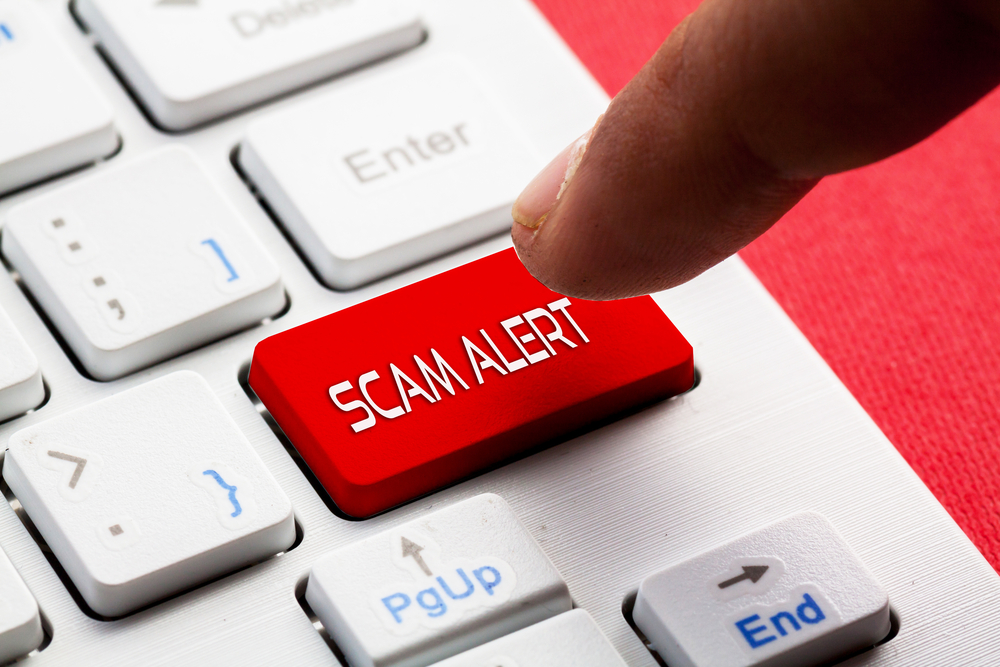
Scammers and hackers know how to get into websites and seem to take delight in ruining a website. They may also demand payment to remove their scams from your website. You don't need to pay them, but you may have to take steps to remove their work from your website.
Types of scams
Scammers or hackers use several methods to hack a site. Some of these include:
- Phishing is a type of email scam
- SEO scams occur when someone says they can optimise your SEO results, but don't deliver
- Payment scams can divert you legitimate payments to a scammers account
- Hacking is usually directed to a website. It can go undetected, but may cause problems or the hacker can demand a ransom to remove the hack
- Ransomware is the word used when a hacker demands a ransom to remove a hack.

All of these methods could lead to serious consequences on your website. Phishing is a serious email scam and the other types of scams could deprive you of legitimate payments or the hacker could demand a payment to remove the hack from your computer.
What to do if you have been scammed
The one thing you don't want to do is pay the hacker to remove their hacks from your site. That will encourage them to hack more sites and they may even hack your website again to extract another payment from you.
If you've been hacked, an IT expert can remove the hack. They will look at your source code, find the hack and remove it. Hiring a legitimate IT expert is much better than paying a hacker because IT experts will not hack sites and you won't encourage the hacker to hack other sites or hack yours again.
If you have been a target of a phishing scam, the best thing you can do is to download an antivirus program and have the program remove the hack. Make sure you find a program that can remove phishing scams. You may have to pay for the program, but paying is much better than letting a phishing scam remain on your computer.
Antivirus programs may not be able to remove hacking from your website. Hire an IT expert and they can remove the infected files. You don't need to hire an IT expert near you. They can do it at a distance if you give them access to your site or web server. They can look at the source code and remove the hack. How much it will cost will depend on the amount of time they have to spend looking for the hack, but it is money worth spending because you don't want to leave the hack on your website. Hackers may even put more than one hack on your website, so an IT expert will have to look at all of your pages. They know what to look for and can easily remove the hacks.
Do not leave hacks or phishing on your computer
The worst thing you can do is leave hacks or phishing scams on your computer or website. Hacks on websites can do serious damage and a hacker may even divert your visits to another site. If you have a natural therapies website, the last thing you want is to have a hacker divert it to a porn site or other site that will damage your reputation.
If you suspect you have been scammed, hire an IT expert and they can remove the infected files. You won't have a problem anymore and a hacker will probably move on to other sites and realise you won't pay them ransomware for their hacks.

Phishing scams can be fatal. Whatever you do, don't open a phishing scam if you notice it. Use an antivirus program to remove it and if an email looks suspicious to you, don't open it. A phishing scam can mean a hacker gets sensitive information from you and may be able to gain access to your bank details or credit card details. They can use that information to use your credit card or even take money out of your bank.
Scammers can claim to be legitimate businesses and ask you for your credit card details or bank account details. Don't give them the information they need because it could have serious consequences. Look at their email address and don't fall for scams that look real, but aren't. If anyone asks for your credit card or bank details, be suspicious of them. A legitimate business would never ask for these details.
Ransomware is a real threat to your security. Never give a hacker ransom. You don't want them to hack other sites or come back to yours and hack it again. It is worth repeating: ignore their ransomware threats and hire an IT expert to remove their hacks.
Another way to avoid being scammed is to present a very reputable brand. And you can do this by adding your business to a Australia's no.1 health & wellness website.
Originally published on Oct 18, 2016








